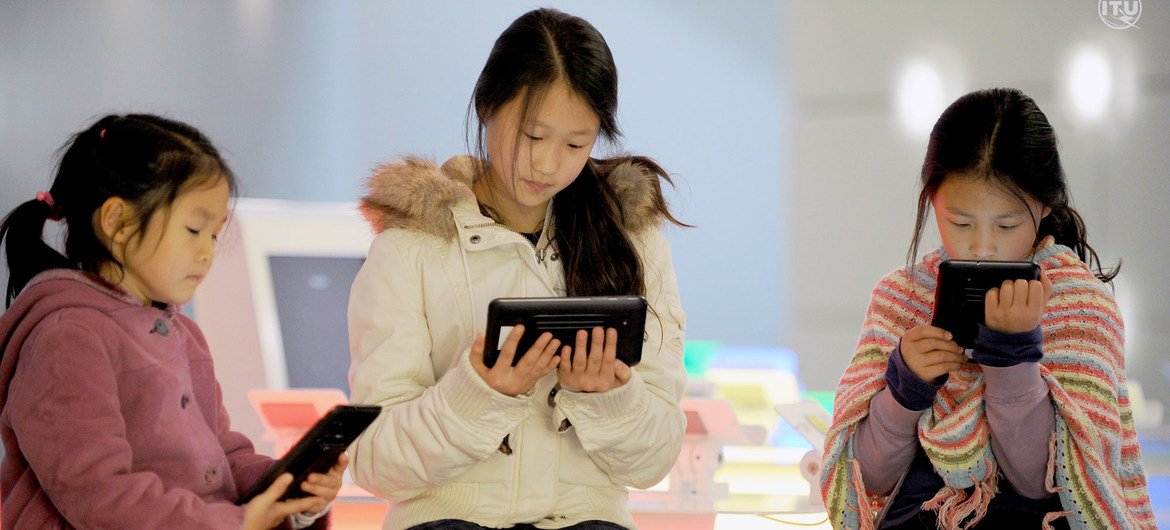
Despite information and communication technology playing such a key role throughout the COVID-19 pandemic, the UN chief said that half the world remains offline, in his message marking International Girls in ICT Day, on Thursday – most of whom are women and girls in developing countries.
According to the International Telecommunication Union (ITU) data, there is a 17 per cent gender gap in Internet use globally, which is even wider in least developed countries.
In some regions, this gender gap is growing, reinforcing gender inequalities by denying women and girls opportunities to access education, find better-paid jobs, and start new businesses. “Making these technologies available to all is an essential part of building back stronger communities and economies, and addressing many of the world's most pressing challenges”, Secretary-General António Guterres said in his statement commemorating the day.
Signalling that Girls in ICT Day aims to inspire a global movement that increases the representation of girls and women in technology, he urged everyone to “recommit to the goal of equal access for young women and girls to opportunities in science, technology, engineering and math”.
Celebrating a decade
While girls across the world tend to outperform boys in reading and writing skills, they continue to be under-represented amongst top performers in Science, Technology, Engineering, and Mathematics (STEM).
To celebrate the 10th anniversary milestone of the day, ITU Secretary-General Houlin Zhao threw his support behind The 10 moments of girls in ICT initiative, a year-long commitment to the next generation of young women in technology.
As an international gender champion, he pledged to help countries raise awareness and promote the active participation of girls and young women in ICT-related careers.
“It will be key to fulfilling the demand of future jobs on an equal basis”, he said.
The ITU chief also committed to reinforce nations’ abilities to collect and disseminate gender and age disaggregated data on access and use of ICT and data skills, calling it “an important step towards informing, monitoring and tracking our global progress towards gender equality”.
With more support towards education and skills training, ITU hopes to encourage more girls and young women to actively pursue careers in STEM to bridge the gender digital divide.
Shaping the future
Meanwhile, the Executive Director of UN Women, Phumzile Mlambo-Ngcuka, said that every girl has a right to be connected and play her part in “shaping a more equal, green and tech-driven future”.
“This is the world we are building together through Generation Equality, and specifically, through our collective work on the Technology and Innovation blueprint, which proposes goals to bring about a more equal and diverse digital transformation”, she said in a statement.
For every girl, the goal must be meaningful connectivity – including broadband that is reliable, fast and regularly available – along with access to digital technologies and universal digital literacy, according to Ms. Mlambo-Ngcuka.
“Today, and every day, we recognize that digital power must be in the hands of girls”, she spelled out. “We have a unique window and momentum now to secure bold commitments that will ensure girls are connected and empowered to create the brighter futures the world needs”.
Careers have no gender
The UN Educational, Scientific and Cultural Organization (UNESCO) said that girls’ education is “one of the most powerful investments we can make for our collective future”.
The UN agency also underlined the importance of mobile applications, female leadership and female entrepreneurship for sustainable development, tweeting: “Careers. Have. No. Gender”.
Source: UN News
 Welcome to the United Nations
Welcome to the United Nations